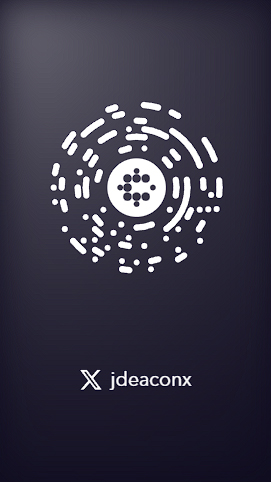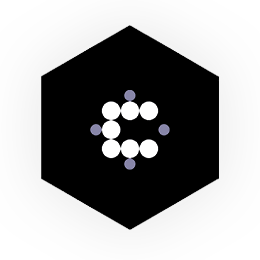Here are some thought-provoking insights related to why people feel they need more knowledge before acting in their own best interest and how this can be addressed:
1. The Illusion of Control
- Insight: The need to consume more knowledge before taking action is often an attempt to exert control over uncertain outcomes. However, true control is an illusion; embracing uncertainty and learning through experience can be more empowering and effective.
2. The Paradox of Knowledge
- Insight: Paradoxically, the more knowledge one acquires, the more one realizes how much remains unknown. This realization can either paralyze or propel action. Recognizing that action and experience are essential components of wisdom can break the cycle of endless preparation.
3. The Fear of Judgment
- Insight: The fear of making mistakes and being judged harshly often stems from childhood experiences. By reframing the narrative around failure and recognizing it as a natural part of growth, individuals can liberate themselves from the need for perfection.
4. The Role of Self-Worth
- Insight: People often equate their worth with their knowledge and achievements. Shifting the focus from external validation to intrinsic self-worth can reduce the dependency on perfect preparation and encourage more spontaneous and authentic action.
5. The Dynamic Nature of Learning
- Insight: Learning is not a static process confined to the acquisition of knowledge; it is dynamic and continuous, heavily influenced by action and feedback. Recognizing that learning accelerates through doing can motivate individuals to take the first step, however imperfect it may be.
6. The Value of Vulnerability
- Insight: Embracing vulnerability by acknowledging what one doesn't know can create opportunities for growth and connection. Vulnerability in action fosters resilience and adaptability, which are crucial for long-term success and fulfillment.
7. The Social Influence
- Insight: Societal norms often pressure individuals to appear knowledgeable and competent at all times. Challenging these norms by valuing transparency and a growth mindset can cultivate a culture that encourages experimentation and learning from failure.
8. The Empowerment of Action
- Insight: Taking action, even in the face of incomplete knowledge, is inherently empowering. It shifts the focus from passive consumption to active creation, fostering a sense of agency and confidence.
9. The Myth of Readiness
- Insight: The notion of being “ready” is often a myth. Real readiness comes from a willingness to start, adapt, and grow through the process. By recognizing that perfection is unattainable, individuals can free themselves to begin their journey with the resources they currently possess.
10. The Impact of Incremental Progress
- Insight: Small, incremental actions can lead to significant progress over time. By focusing on manageable steps rather than the daunting entirety of a task, individuals can build momentum and confidence, transforming hesitation into habitual action.
These insights challenge conventional beliefs about preparation and action, encouraging a more holistic and dynamic approach to personal and professional development. By embracing imperfection, valuing experience, and fostering intrinsic self-worth, individuals can overcome the paralysis of over-preparation and move confidently toward their goals.
Analysis of the Problem
To analyze why people feel they aren't ready to act until they have consumed more knowledge, and how this changes when they decide to take action and correct course along the way.
Here is a structured analysis:
Core Problem
The hesitation to act until more knowledge is consumed can be linked to several patterns identified in the Pattern System, particularly those related to perfectionism, self-esteem, and fear of failure. These patterns often originate from childhood experiences and societal conditioning. Here are the relevant patterns:
- Perfectionism: This involves the belief that one must be perfect to be acceptable. This can manifest as a need to gather excessive knowledge before feeling prepared to act, stemming from a fear of making mistakes.
- Self-Esteem Issues: Low self-esteem can lead to a lack of confidence in one’s abilities, making individuals feel they need more knowledge to compensate for their perceived inadequacies.
- Fear of Failure (Risk Dimension): The fear of making mistakes or failing can lead to procrastination and the over-consumption of knowledge as a way to avoid taking the risk of action.
Analysis Using the Pattern System
Patterns
- Perfectionism: Individuals with this pattern believe they must be fully prepared and knowledgeable before they can act. This can lead to an endless cycle of learning without doing, as no amount of knowledge feels sufficient.
- Low Self-Esteem: This pattern can result in individuals undervaluing their own judgment and capabilities, leading them to seek more external validation through knowledge acquisition.
- Risk Avoidance (Fear of Failure): These individuals might avoid taking action due to the fear of potential negative outcomes, leading to a state of paralysis by analysis.
Underlying Dynamics
- Childhood Conditioning: Many of these patterns are rooted in early experiences where mistakes may have been harshly judged or where achievement was overly emphasized.
- Social Conditioning: Societal norms that equate knowledge with success can reinforce these patterns, making individuals feel they must know everything before they can succeed.
Transition to Action
Once individuals recognize the limitations of endless knowledge consumption, they often shift towards taking action and correcting course along the way. This shift involves developing certain capacities:
- Self-Supporting Capacities:
- Assertiveness: Developing the capacity to assert oneself and take action despite incomplete knowledge.
- Self-Compassion: Accepting that mistakes are part of the learning process and not a reflection of one’s worth.
- Relational Capacities:
- Good Communication: Being able to seek feedback and learn from others during the process, rather than feeling the need to know everything beforehand.
- Collaboration: Working with others can reduce the pressure to be perfect and allow for shared learning and growth.
Potential Solutions
To help individuals transition from over-preparation to action, several strategies can be employed:
- Awareness and Identification: Recognize and name the patterns (e.g., perfectionism, fear of failure) that are causing the hesitation to act.
- Incremental Steps: Encourage taking small, manageable steps rather than waiting for the perfect moment.
- Reframe Mistakes: Promote the understanding that mistakes are valuable learning opportunities.
- Support Systems: Build a supportive environment where feedback is constructive and individuals feel safe to take risks.
Conclusion
People often feel unready to act until they have more knowledge due to underlying patterns related to perfectionism, self-esteem, and fear of failure. Recognizing these patterns and developing capacities such as assertiveness, self-compassion, good communication, and collaboration can help individuals move from a state of preparation to taking action and adjusting along the way. By understanding and addressing the psychological roots of these patterns, individuals can foster a more proactive and resilient approach to personal and professional growth.




